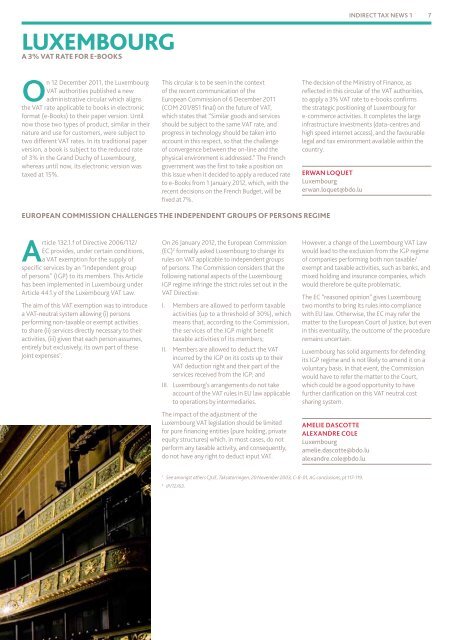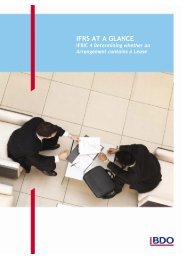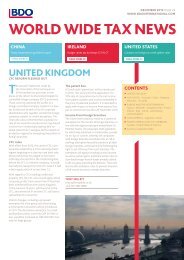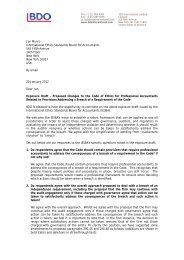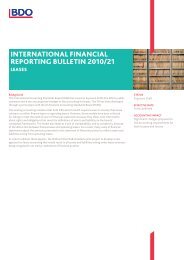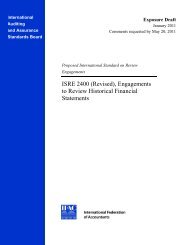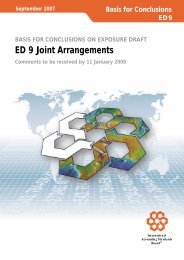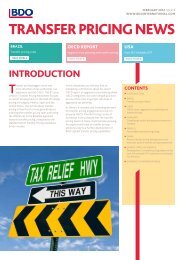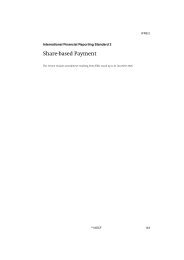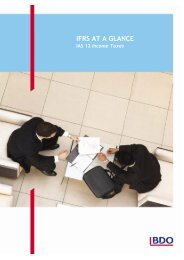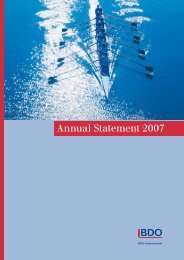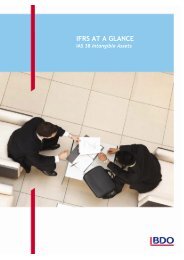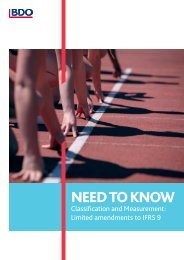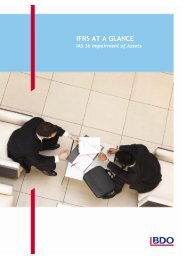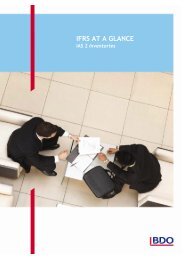Indirect Tax News 1 - March 2012 - BDO International
Indirect Tax News 1 - March 2012 - BDO International
Indirect Tax News 1 - March 2012 - BDO International
You also want an ePaper? Increase the reach of your titles
YUMPU automatically turns print PDFs into web optimized ePapers that Google loves.
LUXEMBOURG<br />
A 3% VAT RATE FOR E-BOOKS<br />
INDIRECT TAX NEWS 1<br />
7<br />
On 12 December 2011, the Luxembourg<br />
VAT authorities published a new<br />
administrative circular which aligns<br />
the VAT rate applicable to books in electronic<br />
format (e-Books) to their paper version. Until<br />
now those two types of product, similar in their<br />
nature and use for customers, were subject to<br />
two different VAT rates. In its traditional paper<br />
version, a book is subject to the reduced rate<br />
of 3% in the Grand Duchy of Luxembourg,<br />
whereas until now, its electronic version was<br />
taxed at 15%.<br />
This circular is to be seen in the context<br />
of the recent communication of the<br />
European Commission of 6 December 2011<br />
(COM 201/851 final) on the future of VAT,<br />
which states that “Similar goods and services<br />
should be subject to the same VAT rate, and<br />
progress in technology should be taken into<br />
account in this respect, so that the challenge<br />
of convergence between the on-line and the<br />
physical environment is addressed.” The French<br />
government was the first to take a position on<br />
this issue when it decided to apply a reduced rate<br />
to e-Books from 1 January <strong>2012</strong>, which, with the<br />
recent decisions on the French Budget, will be<br />
fixed at 7%.<br />
The decision of the Ministry of Finance, as<br />
reflected in this circular of the VAT authorities,<br />
to apply a 3% VAT rate to e-books confirms<br />
the strategic positioning of Luxembourg for<br />
e-commerce activities. It completes the large<br />
infrastructure investments (data-centres and<br />
high speed internet access), and the favourable<br />
legal and tax environment available within the<br />
country.<br />
ERWAN LOQUET<br />
Luxembourg<br />
erwan.loquet@bdo.lu<br />
EUROPEAN COMMISSION CHALLENGES THE INDEPENDENT GROUPS OF PERSONS REGIME<br />
Article 132.1.f of Directive 2006/112/<br />
EC provides, under certain conditions,<br />
a VAT exemption for the supply of<br />
specific services by an “independent group<br />
of persons” (IGP) to its members. This Article<br />
has been implemented in Luxembourg under<br />
Article 44.1.y of the Luxembourg VAT Law.<br />
The aim of this VAT exemption was to introduce<br />
a VAT-neutral system allowing (i) persons<br />
performing non-taxable or exempt activities<br />
to share (ii) services directly necessary to their<br />
activities, (iii) given that each person assumes,<br />
entirely but exclusively, its own part of these<br />
joint expenses 1 .<br />
On 26 January <strong>2012</strong>, the European Commission<br />
(EC) 2 formally asked Luxembourg to change its<br />
rules on VAT applicable to independent groups<br />
of persons. The Commission considers that the<br />
following national aspects of the Luxembourg<br />
IGP regime infringe the strict rules set out in the<br />
VAT Directive:<br />
I. Members are allowed to perform taxable<br />
activities (up to a threshold of 30%), which<br />
means that, according to the Commission,<br />
the services of the IGP might benefit<br />
taxable activities of its members;<br />
II. Members are allowed to deduct the VAT<br />
incurred by the IGP on its costs up to their<br />
VAT deduction right and their part of the<br />
services received from the IGP; and<br />
III. Luxembourg’s arrangements do not take<br />
account of the VAT rules in EU law applicable<br />
to operations by intermediaries.<br />
The impact of the adjustment of the<br />
Luxembourg VAT legislation should be limited<br />
for pure financing entities (pure holding, private<br />
equity structures) which, in most cases, do not<br />
perform any taxable activity, and consequently,<br />
do not have any right to deduct input VAT.<br />
However, a change of the Luxembourg VAT Law<br />
would lead to the exclusion from the IGP regime<br />
of companies performing both non taxable/<br />
exempt and taxable activities, such as banks, and<br />
mixed holding and insurance companies, which<br />
would therefore be quite problematic.<br />
The EC “reasoned opinion” gives Luxembourg<br />
two months to bring its rules into compliance<br />
with EU law. Otherwise, the EC may refer the<br />
matter to the European Court of Justice, but even<br />
in this eventuality, the outcome of the procedure<br />
remains uncertain.<br />
Luxembourg has solid arguments for defending<br />
its IGP regime and is not likely to amend it on a<br />
voluntary basis. In that event, the Commission<br />
would have to refer the matter to the Court,<br />
which could be a good opportunity to have<br />
further clarification on this VAT neutral cost<br />
sharing system.<br />
AMELIE DASCOTTE<br />
ALEXANDRE COLE<br />
Luxembourg<br />
amelie.dascotte@bdo.lu<br />
alexandre.cole@bdo.lu<br />
1<br />
See amongst others CJUE, Taksatorringen, 20 November 2003, C-8-01, AG conclusions, pt 117-119.<br />
2<br />
IP/12/63.


